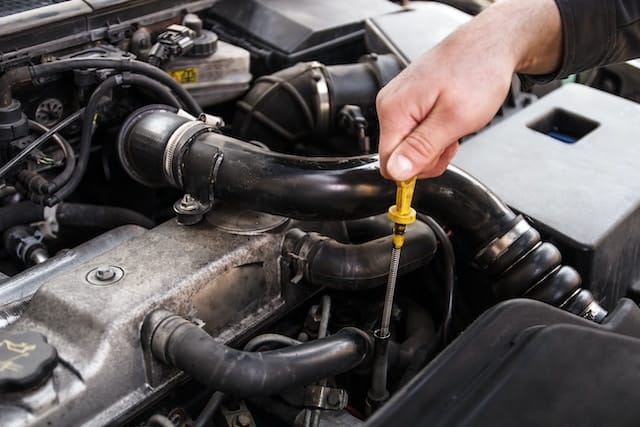
How to stop a car from burning oil? The solution lies in understanding the common causes and implementing effective strategies to address them. Whether it’s due to leaks, using the wrong oil grade, worn parts, or driving habits, taking proactive steps can mitigate the problem. This article will give you actionable advice to keep your engine in peak condition and prevent oil burning.
Causes of Oil Burning
Leaks: The Common Culprit
Leaks are a primary reason for oil burning in vehicles. Seals and gaskets can deteriorate over time, resulting in oil seeping out. These leaks may not be obvious at first glance but can cause significant oil loss over time.
The Right Oil Grade Matters
Using the incorrect oil grade is another frequent mistake that leads to oil burning. Your vehicle requires a specific oil type, and opting for a lower grade than recommended can increase engine friction and heat, accelerating oil consumption.
Worn Piston Rings: A Hidden Issue
Piston rings are designed to seal the space between pistons and cylinder walls. When they wear out, oil leaks into the combustion chamber, causing the engine to burn oil at a higher rate.
Excessive Idling and Driving Habits
Long periods of idling can degrade oil quality, resulting in increased oil consumption. Similarly, aggressive driving puts extra stress on the engine, breaking down oil faster.
| Problems Due to Burning Oil | Tips to Address Oil Burning |
|---|---|
| Engine runs rough | Regularly check and replace spark plugs |
| Spark plugs fouled | Maintain proper oil levels and quality |
| Catalytic converter overheats/fails | Use high-quality fuel and additives to clean the system |
| Low engine oil leads to motor damage | Follow recommended oil change intervals |
| Increased exhaust emissions | Drive responsibly to reduce engine stress |
The Consequences of Overlooking Engine Oil Burn
If oil burning in a car is not promptly resolved, it can lead to a host of complications. While regular oil top-ups can keep the vehicle running temporarily, the engine may eventually operate erratically due to improper combustion. Oil residue can foul spark plugs, triggering engine warnings. The catalytic converter may overheat or malfunction due to oil in the exhaust, and critically low oil levels can result in severe engine damage or complete failure. It’s crucial to address oil burning issues immediately to avoid these outcomes.
How to Stop a Car from Burning Oil: Essential Tips

Regular Checks for Leaks
Monitor your vehicle for potential leaks. Park on a flat surface and look for oil on the ground beneath the engine. If you spot a leak, it’s best to have it fixed promptly at a trusted auto service center.
Choosing the Correct Oil Grade
Always use the oil grade specified for your car. If unsure, refer to your owner’s manual or ask a qualified mechanic for advice.
Adhere to Oil Change Intervals
Stick to the recommended oil change schedule for your vehicle, which is typically every 5,000 miles, but may vary. Consult your manual or a mechanic if you’re uncertain.
Minimize Idling
Avoid letting your car idle for long stretches. If necessary, turn off and restart your car periodically to allow oil to circulate properly.
Responsible Driving
Drive carefully to reduce engine stress. This includes avoiding aggressive driving behaviors like hard acceleration and sudden braking.
Conclusion: Ensuring Engine Health
On average, a vehicle might burn anywhere from a negligible amount of oil up to 1 quart of oil every 1,000 to 1,500 miles. Normal oil consumption can be as low as 1 quart per 2,000 miles in a well-maintained engine. Newer engines tend to be more efficient, often staying on the lower end of this range, while older engines might be on the higher side.
Burning oil in engines, a prevalent issue especially in older vehicles, may be common but should not be dismissed as normal. A well-functioning engine is designed to minimize oil burn-off, and noticeable depletion between oil changes signals a problem. Ignoring this can lead to severe engine damage due to inadequate lubrication. Moreover, continuous top-offs are not a solution; they can damage costly components like the catalytic converter, reduce engine efficiency, and harm the environment. Thus, oil consumption is a concern that warrants attention for the health of your vehicle and the environment.
By understanding what causes oil burning and implementing the suggested tips, you can significantly cut the risks. Adhere to a regular maintenance schedule, choose the correct oil, and drive responsibly. These steps are vital in guarding against excessive oil consumption. If the problem persists, professional evaluation is crucial for your vehicle’s longevity and reliability.


